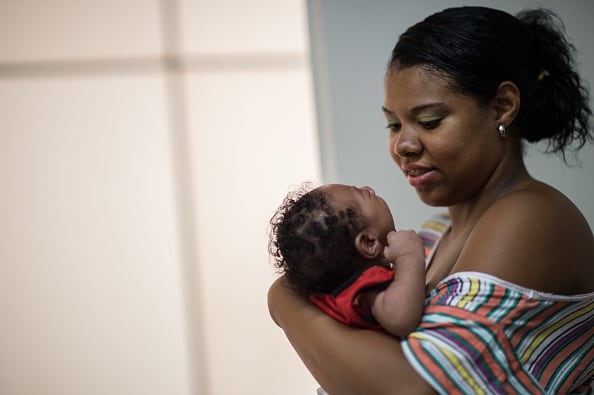By Linda Goler Blount, MPH
While most pregnancy-related deaths happen during or immediately after pregnancy, nearly 12 percent occur up to a year after a live birth. Sadly, about two-thirds of all maternal deaths can be prevented.
So why isn’t this happening?
The list of reasons is long, but the No. 1 factor is that most of these women are black and brown. Black women are 3.3 times as likely to die from pregnancy-related complications than white women. The rate is 2.5 times for American Indian/Alaska Native women, according to a new report from the Centers for Disease Control on the timing of these deaths and strategies for prevention.
In some cases, women weren’t aware of the warning signs or following a medical regimen. However, many contributing factors occurred among those who are trained to know better and take oaths to care — or, at least, to do no harm. Implicit bias can cause doctors, nurses and others to devalue women of color. But paying less attention to us comes at a high price — our very lives.
Women whose complaints are ignored can bleed to death. Women whose risk factors are ignored can die when those risks turn into reality. Women whose providers don’t communicate with each other can fall into deadly gaps in coordination of their care. And women who are medically abandoned after the six-week postpartum period can end up dead a year after bringing their babies home.
According to the CDC study, the leading causes of maternal deaths included cardiovascular conditions, infection and hemorrhage. The causes varied by timing whether the deaths occurred during pregnancy (31.3 percent), on delivery day (16.9 percent), one to six days postpartum (18.76 percent), seven to 42 days postpartum (21.4 percent) or 43 to 365 days postpartum (11.7 percent).
Despite what we know, women are still being blamed for their own deaths. But is it fair to blame women for being poor, or for not starting prenatal care early when nearly 50% of women don’t know they’re pregnant until well into the first trimester? The real culprits, however, are health insurance policies that end medical coverage too soon, systems of care delivery that are not relevant to women of color and the training of medical residents and providers that reinforces bias and racism — a common denominator that impacts Black women across all socioeconomic levels. Black women with advanced degrees earning more than $100,000 per year have maternal and infant mortality rates worse than white Women without an 8thgrade education.
It’s not just property.
Racism causes stress, which leads to poor health outcomes. That’s why it’s so important to pay closer attention to black women’s emotional and mental health regardless of age, income and education.
Racism wears you down like a persistent storm whether it is structural or an everyday microaggression coming a drop at a time. That’s why Arline Geronimus,a professor at the University of Michigan School of Public Health, calls it “weathering.” Racism can be related to employment, environmentally toxic communities, poor housing, inadequate transportation or maternity-care deserts, such as those in Wards 7 and 8 in Washington, D.C.
It’s clear from the data on pregnancy-related deaths that much more needs to be do to prevent maternal mortality. Maternal mortality review committees should be mandated in every state to provide data to fully understand the causes of maternal deaths; all obstetric providers should undergo implicit bias training and community-based programs need to be funded to reach women at risk.
One such program that’s working well is the state-wide Pregnancy Medical Home (PMH) in North Carolina, where home visits occur every few weeks during the postpartum period. Maternal deaths have dropped by more than 50% through the PMH program and other initiatives.However, state-level policies must change so that women receiving Medicaid don’t lose coverage six weeks after their delivery dates. And, health facilities must have the resources to be prepared to deal with obstetric emergencies.
It’s long past time to stop blaming the victim. It is time to start listening to Black women.
We at the Black Women’s Health Imperative will continue to fight for access to quality medical care and reproductive rights — especially at this critical time with increasing efforts to control our bodies, silence our voices and create more victims.
Linda Goler Blount, MPH, is President and CEO of the Black Women’s Health Imperative.








